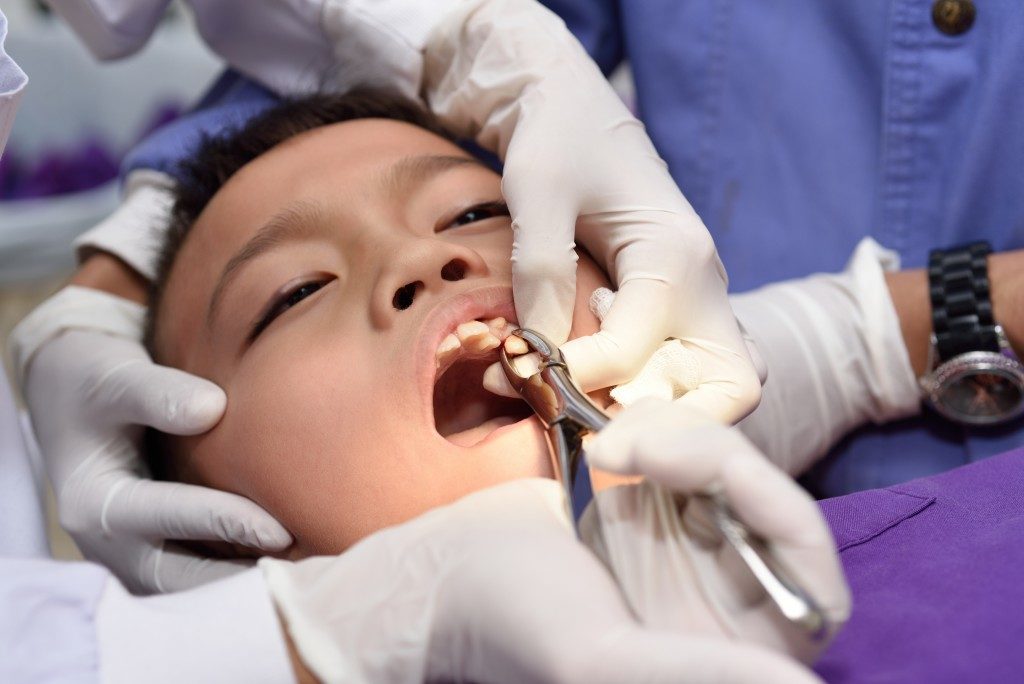You have heard tales about dental health that sound too good to be true, but are they really myths or facts? This article will explore five of the most common misconceptions about dental care and unravel the truth behind them. By understanding the science behind these popular dental myths, you can ensure you are taking proper care of your teeth and gums, and avoid any preventable damage.
Myth #1: You don’t need to see the dentist regularly
Contrary to popular belief, it is not true that you don’t need to see the dentist regularly. Regular visits to the dentist are essential for maintaining good oral health and can help detect any potential issues before they become more serious. Without regular check-ups, plaque, tartar, and bacteria can build up on teeth leading to cavities, tooth decay, and gum disease.
Regular visits also allow your dentist to check for any signs of oral cancer. Seeing the dentist regularly can help prevent dental problems from getting worse and ensure your smile stays healthy! It is recommended that adults visit their dentist twice a year or more, depending on individual needs.
When choosing a dentist, look for one who is up to date on the latest dental procedures, has experience in dealing with complicated cases, and provides personalized care. bullarddentalaugusta is one such option that offers a comprehensive range of dental services. They have a team of experienced professionals who strive to ensure the patient’s experience is as comfortable and stress-free as possible.

Myth #2: Toothpaste with fluoride is bad for you
Many people falsely believe that toothpaste with fluoride is bad for you. This could not be further from the truth! Fluoride is a naturally occurring mineral that helps to protect teeth from decay and cavities by strengthening enamel, making it more resistant to acid attacks caused by sugar and bacteria.
Most toothpaste contains fluoride because of its proven effectiveness in protecting teeth from decay. Regular brushing with fluoride toothpaste is essential for good oral health, and it is safe to use — be sure not to swallow the toothpaste. While too much fluoride can lead to fluorosis, a condition where teeth become discolored or mottled, this typically happens when taking excessive amounts of fluoride over extended periods.
Myth #3: Cracked teeth always need to be extracted
Contrary to popular belief, cracked teeth do not always need to be extracted. While tooth extraction may be necessary in some cases, the crack can be treated and the tooth saved. Depending on the severity of the crack, treatments such as bonding or crowns may be used to repair the damage and protect the remaining healthy parts of the tooth.
In cases of severe cracks, a root canal may be necessary to remove any infection or damage to the inner parts of the tooth. It is essential to visit your dentist if you suspect a cracked tooth, so they can evaluate and recommend the best course of action for preserving your smile.
Myth #4: Eating lots of sugar causes cavities
Eating lots of sugar does not necessarily cause cavities. While it is true that bacteria in the mouth feed on sugar and produce acid, which can lead to tooth decay, the amount of sugar you eat does not directly determine how likely you are to get cavities. Cavities form when food debris and bacteria build up on teeth, creating an acidic environment that causes the enamel to erode.
The amount of decay in your mouth is determined by how well you practice good oral hygiene, how often you brush and floss, and how much saliva is present in your mouth. Eating lots of sugar can increase the risk of cavities, but regular brushing and flossing are key for eliminating bacteria and maintaining good oral health.
Myth #5: Caffeine doesn’t affect your teeth
The belief that caffeine does not affect your teeth is a common dental myth. Caffeine can hurt oral health, as it can contribute to dry mouth, increasing bacteria and plaque buildup. Excessive caffeine consumption can also stain the teeth over time, causing them to become discolored.
Additionally, caffeinated beverages such as coffee, tea, and energy drinks tend to contain high acid levels, which can erode tooth enamel. To protect your teeth from the effects of caffeine, it is essential to practice good oral hygiene, like brushing twice a day and drinking plenty of water. Limiting your caffeine intake can also help reduce its adverse effects on your teeth.
Myth #6: Tooth whitening is bad for your teeth
The belief that tooth whitening is bad for your teeth is not valid. In fact, when done correctly, under the guidance of an experienced professional, tooth whitening can be a safe and effective way to brighten your smile. The bleaching agents used in tooth whitening are highly regulated and typically only affect the outer layer of enamel, leaving the underlying healthy parts of the tooth intact.
It is essential to follow any instructions provided by your dentist when undergoing a teeth whitening procedure and to avoid over-bleaching, as it can cause sensitivity or irritation to the gums. With proper care and maintenance, tooth whitening can be a great way to improve your smile.
To Wrap It Up
Don’t believe everything you hear! Many myths about dental health are circulating, but now you know the truth, thanks to this blog post. Remember, even if you brush and floss daily, you still need to see the dentist for regular checkups and cleanings. And contrary to popular belief, fluoride is good for your teeth!


